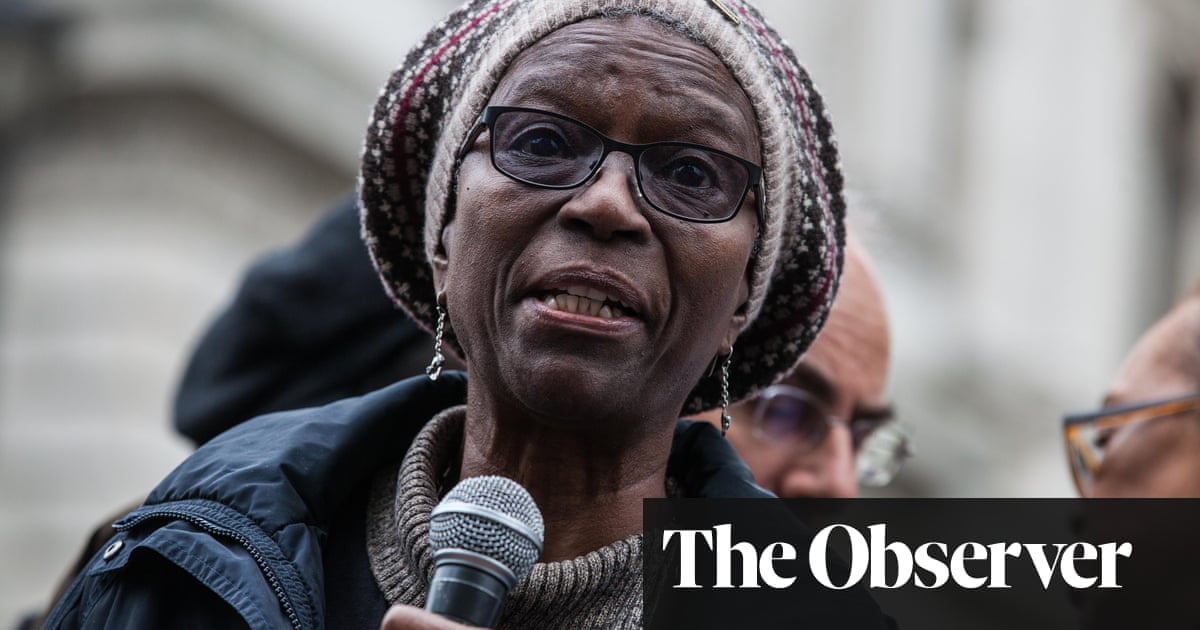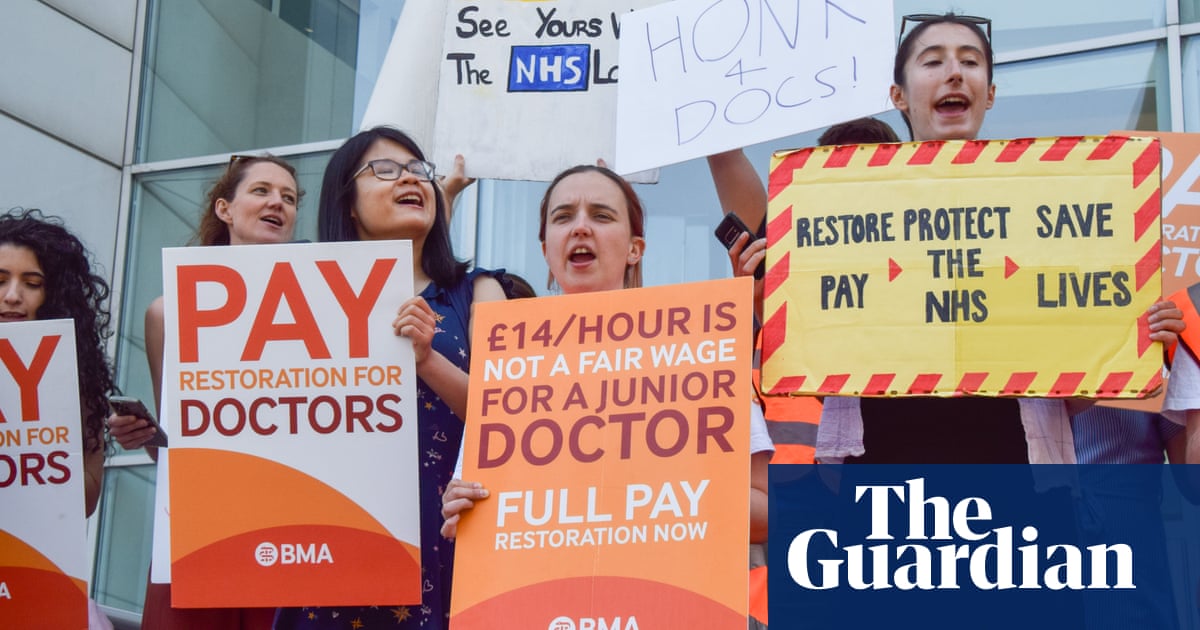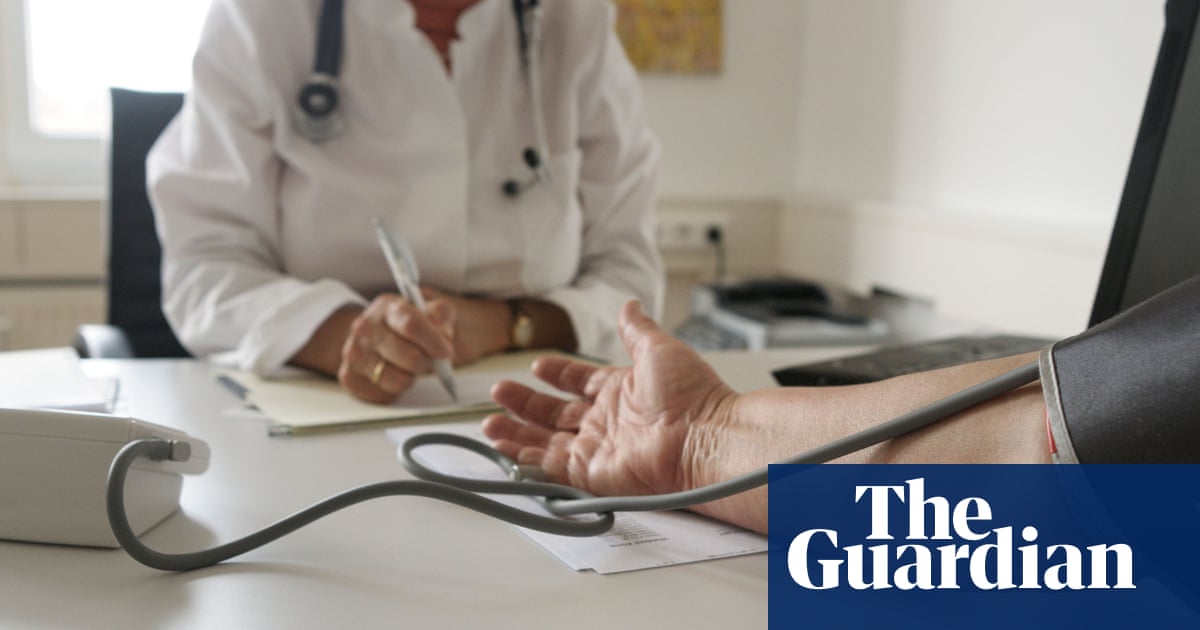
One of the UK’s biggest GP practice operators has quietly passed into the hands of the US health insurance group Centene Corporation, prompting calls for an official investigation into what campaigners claim is “privatisation of the NHS by stealth”.
The merger is expected to create the largest private supplier of GP services in the UK, with 58 practices covering half a million patients.
A coalition of doctors, campaigners and academics has voiced concerns in a letter sent this week to the health secretary, Matt Hancock, asking him to order an investigation by the Care Quality Commission.
Operose Health, a UK subsidiary of Centene, has recently taken over the privately owned AT Medics, which was set up in 2004 by six NHS GPs and runs 37 GP practices across 49 sites in London. Operose already operates 21 GP surgeries in England.
Objectors are concerned because they claim the change of control was approved for eight practices in the London boroughs of Camden, Islington and Haringey in a virtual meeting on 17 December that lasted less than nine minutes, during which no mention was made of Centene and not a single question was asked.
The approval was granted by the North Central London clinical commissioning group (NCL CCG), a local NHS body that purchases health services from GPs, hospitals and others using taxpayer funds.
The campaign group Keep Our NHS Public, Doctors in Unite, Allyson Pollock, a clinical professor of public health at Newcastle University, and others have written to Josephine Sauvage, the chair of NCL CCG, urging her to block the change of control at AT Medics, which has made £35m in profits over the last five years.
During the meeting on 17 December, AT Medics indicated there would be “no change to the board of directors,” according to the draft minutes of the event, which were approved last week.
However, despite this pledge, the change of control was effected when all six AT Medics directors resigned on 10 February, and three new directors were appointed, all of them also directors of Operose. The latter include Prof Nick Harding, who is Operose’s chief medical officer and a practising GP, and Samantha Jones, Operose’s chief executive and a former head of West Hertfordshire hospitals NHS trust.
The letter to Hancock said: “Whilst we imagine you will not be sympathetic to those of us who consider that US health insurers have no place in the provision of NHS services, we ask you to consider carefully the reasons for our request.
“Most of the CCGs have published nothing about this significant change, and held no meetings in public … This matter is an example of the privatisation of the NHS by stealth to which we have consistently drawn attention, and which you have, equally consistently, dismissed.”
Pollock told the Guardian: “What we’re really worried about is changes in the model of care and quality of service, especially in areas of high deprivation. Practices may employ fewer GPs – and they may bring in substitutes for GPs like pharmacists and nurses – there may be cuts in services and reduced access, for example, closures of branch surgeries.”
Operose confirmed the change of control, saying: “The care that we deliver to our patients and the services accessed through our surgeries will not change. We have followed all the required regulatory procedures, including obtaining consent from our CCGs. As a provider of NHS services, care remains free at the point of delivery. In addition, and as with all other GP services throughout the country, we will continue to be regulated and inspected by the Care Quality Commission.”
Operose said only those involved in delivering care had access to patients’ data, and that data would not be shared with with third parties unless obliged by UK law.
Liz Wise, the director of primary care and public health commissioning for the NHS in London, said: “The ownership of the holding company of AT Medics Ltd has been transferred after consent was given by the relevant commissioners. Patient Care remains unaffected by this change and patient data is protected.”
Frances O’Callaghan, North Central London CCG’s accountable officer, said there had been no legal or contractual basis for the CCG to reject the transfer of ownership, and doing so would have posed a risk to continuity of care.
“We followed a robust process to confirm that the transfer would not affect our patients, which included being assured regarding patient data protection. Twelve other London CCGs who commission AT Medics also considered and individually approved the transfer.”
The Department of Health and Social Care said the NHS had always involved a mixture of public and private provision, and it was not for sale to the private sector.












